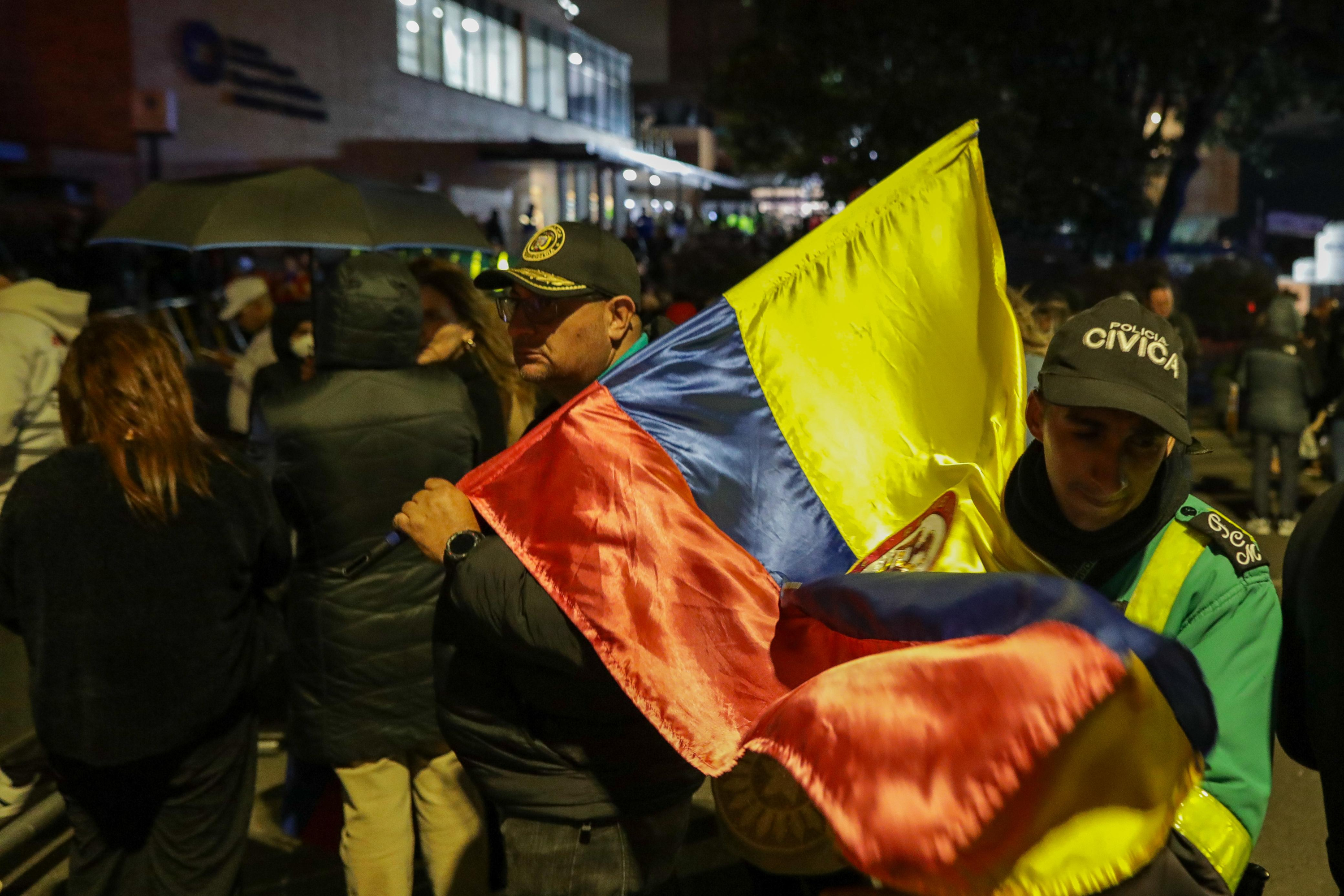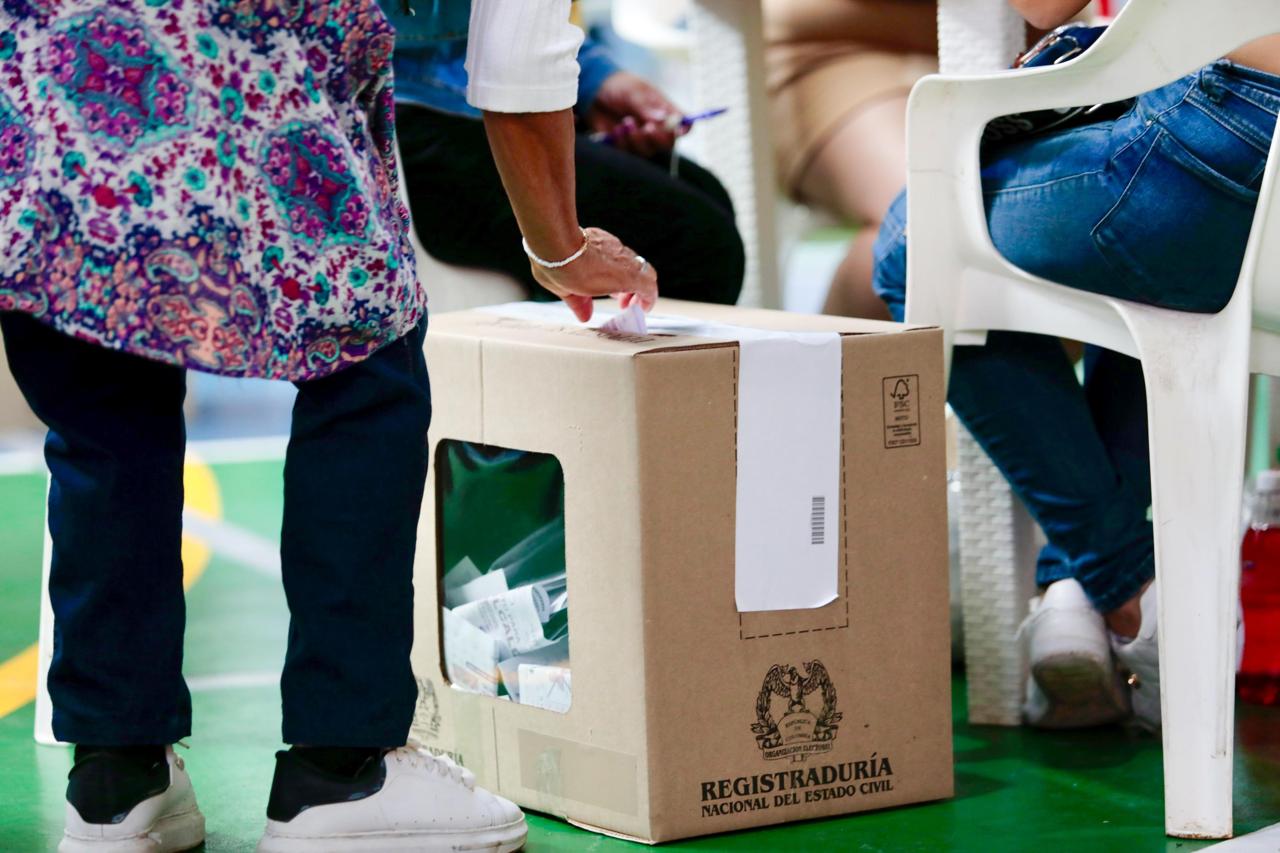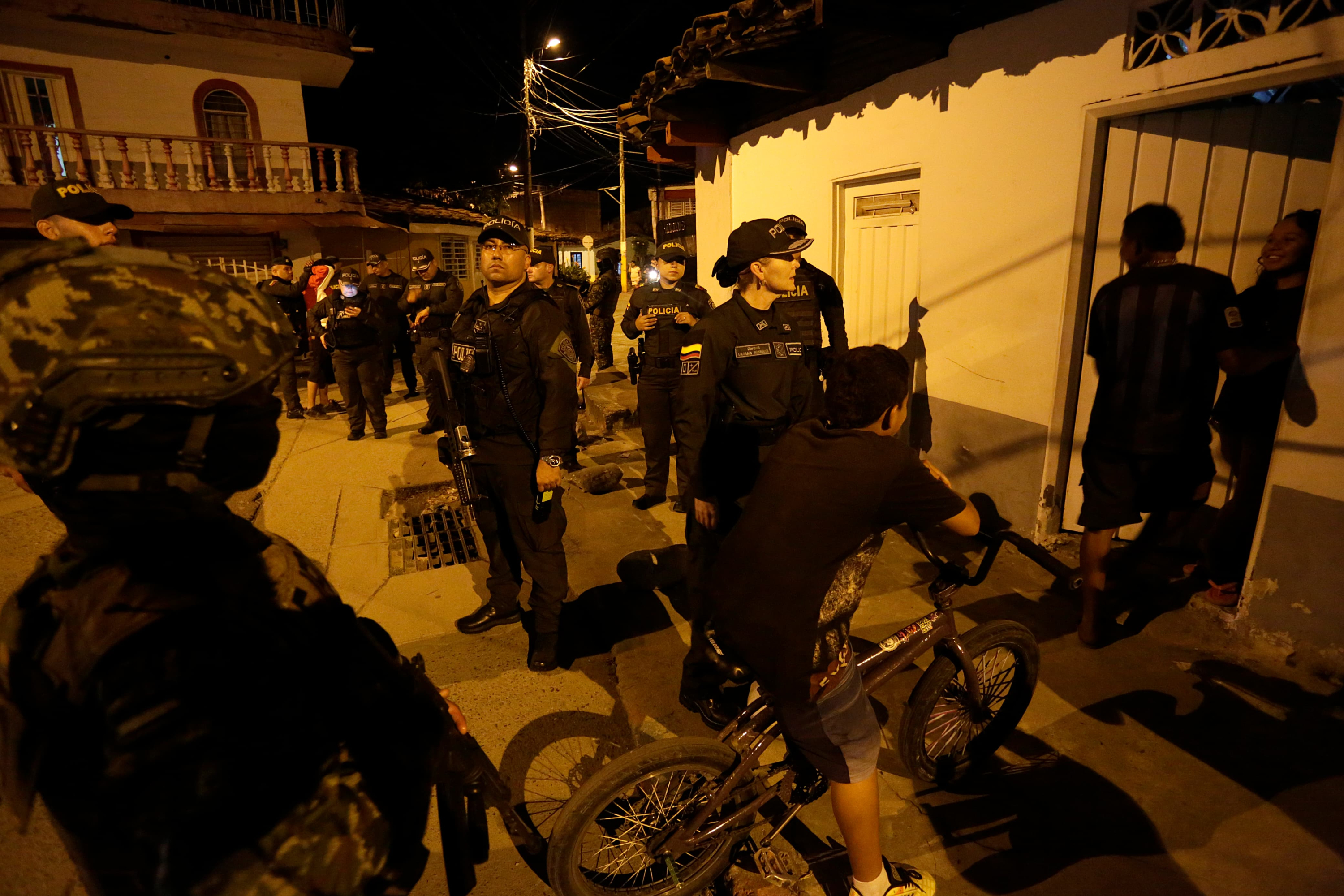'There is a discouraging message for those considering running in future elections': MOE

According to the latest report from the Electoral Observation Mission (EOM), published on June 27, between January 1 and May 8, 2025, 134 incidents of violence against political, social, and community leaders were recorded. Of this figure, 58 incidents were recorded against political leaders (43.28 percent), of which 32 affected individuals who participated in the 2023 electoral process.
The deputy director of the MOE, Frey Alejandro Muñoz, spoke with EL TIEMPO about this situation and how it affects the 2026 electoral process.
What explains why the majority of victims of violent acts involving political leaders are participants in the 2023 local elections? 
Near the Santa Fe Foundation in Bogotá. Photo: César Melgarejo/El Tiempo
This highlights violent actors who recognize the strategic value of elected officials and public entities as spaces of local power. The intimidation of those in office seeks to weaken governance, affect territorial institutions, and facilitate control by illegal armed groups. The EOM's monitoring confirms that this violence is not directed against a specific political sector, but rather responds to the logic of territorial domination, regardless of ideological or partisan affiliation.
How are these attacks affecting the exercise of public office? These attacks seriously affect the work of local leaders and members of public corporations, as in many cases they seek to hinder the independent exercise of their functions or weaken governance by keeping them in a constant state of security anxiety. This ongoing risk limits their presence in the territories and contact with communities, can hinder the implementation of public policies, and generates fear of expressing themselves freely or making decisions. Furthermore, in the face of future electoral processes, it sends a discouraging message to those considering running for office , highlighting the personal risks involved in leading a campaign and holding a representative position, especially in areas with the presence of illegal armed groups.
Why does this represent a risk for the 2026 electoral process? 
The polls will close at 4 p.m. Photo: Registry Office
Social, community, and political leaders are fundamental actors in any electoral process, as they play key roles in their territories as representatives, spokespersons, and liaisons between communities and the State. When these leaders are subjected to violence, a structural risk is evident that affects citizens' right to participate in politics freely and without coercion. In view of the 2026 elections, the report presented by the MOE takes on special relevance, as it warns that the territories with the highest rates of lethal violence, kidnappings, and armed actions between illegal groups coincide with the areas where representatives to the Chamber of Deputies will be elected again for the Special Transitional Peace Constituencies (CITREP). Additionally, presidential elections will be held, a highly visible and polarized process that could be affected by the strengthening of territorial control by armed actors. This could translate into direct pressure on voters, candidates, and local political dynamics. Given this scenario, targeted and timely state actions are required, aimed at preventing these impacts and guaranteeing real conditions for democratic participation.
What factors explain why, despite the reduction in the number of attacks compared to previous years, the mortality rate remains high? Following the signing of the Peace Agreement and the demobilization of the FARC-EP, the emergence of new armed structures and the expansion and confrontation between existing illegal groups led to a sustained increase in violence against political, social, and community leaders between 2017 and 2022. This phenomenon unfolded in a context of territorial disputes and control of illicit economies, which allowed for the consolidation of certain armed actors in different territories. Beginning in 2023, and for the period analyzed (January 1 to May 8, 2025), a reduction in the total number of attacks was observed. This could be explained by a more consolidated scenario of territorial control, where armed actors do not require high levels of violence, but rather more selective actions. In this new context, murders and attacks tend to be more targeted, and practices such as kidnapping are resurfacing, used to generate fear, reinforce social control, and exert pressure on communities and local leaders.
What does the EOM propose for the National Government and local authorities to address this violence structurally, in view of the 2026 electoral process? 
The Army is present in Tuluá. Photo: Juan Pablo Rueda, El Tiempo
Since the end of last year, within the framework of the first National Coordination and Monitoring Commission for the 2026 Congressional and Presidential elections, as well as with the official launch of electoral observation in March of this year—and reiterated in the two subsequent monitoring commissions—the EOM has emphasized the need to align the National Plan for Electoral Guarantees with the National Government's peace and security strategies. In this coordination, the role of the High Commissioner for Peace is highlighted, with the aim of ensuring that in territories with a strong presence of illegal armed groups, minimum agreements are reached that guarantee political participation without mobility restrictions or undue pressure on the electorate. Likewise, in the most recent Monitoring Commission, the EOM proposed the immediate establishment of the Committee for Coordination and Recommendation of Protection Measures in the Electoral Process (CORMPE), with a political focus that allows for the establishment of special roundtables for the opposition and independent sectors. This proposal also includes strengthening the preventive role of local authorities and implementing collective protection mechanisms with a territorial and community focus. These recommendations, which are reiterated in the report on violence against social, political, and community leaders, also underscore the urgency of activating the Comprehensive System for Security in the Exercise of Politics (SISEP) at the regional level, through plans adapted to the specific dynamics and risks of each region.
Juan Pablo Penagos Ramirez
eltiempo





